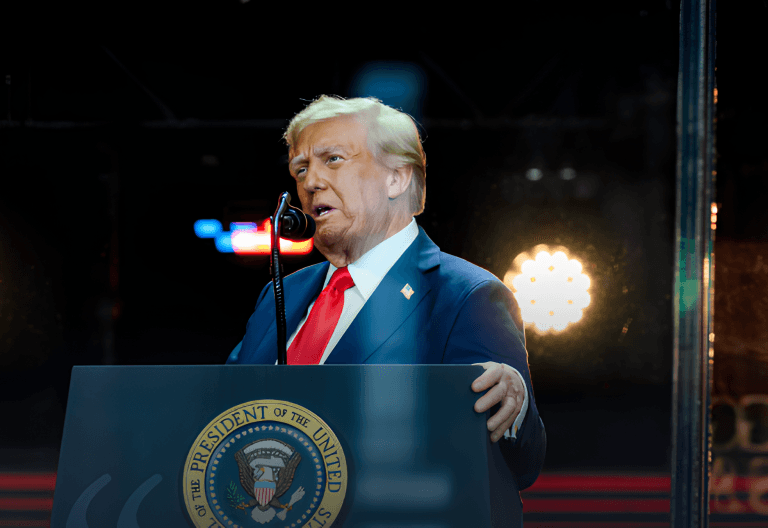We're loading the full news article for you. This includes the article content, images, author information, and related articles.
The resolution, passed with Russian and Chinese abstentions, establishes a new framework for Gaza's governance and reconstruction. For East Africa, the vote by regional bloc member Somalia signals a significant diplomatic alignment on the contentious issue.

NEW YORK – The United Nations Security Council on Monday, November 17, 2025, adopted a United States-drafted resolution endorsing a comprehensive 20-point peace plan for Gaza proposed by U.S. President Donald Trump. The resolution passed with a decisive 13 votes in favour, none against, and two key abstentions from permanent members Russia and China, marking a significant diplomatic development after two years of devastating conflict.
The vote, which took place at approximately 6:51 p.m. EAT (11:51 a.m. EST), gives a binding international mandate to a framework that aims to transition Gaza from a fragile ceasefire to a sustained peace. Key provisions of the newly adopted Resolution 2803 include the establishment of an internationally-backed "Board of Peace" (BoP) to act as a transitional authority and the authorisation of a temporary "International Stabilization Force" (ISF) to oversee security and demilitarisation in the enclave.
According to the resolution's text, the ISF is tasked with securing border areas, dismantling militant infrastructure, and ensuring the permanent decommissioning of weapons from non-state armed groups like Hamas. U.S. Ambassador to the UN, Mike Waltz, stated after the vote that the force would work in close coordination with Egypt and Israel to protect civilians and humanitarian operations. Several countries, including Indonesia and Azerbaijan, have reportedly agreed to contribute troops.
Of particular significance for East Africa, Somalia, a non-permanent member of the Security Council for the 2025-2026 term, voted in favour of the resolution. This aligns the Horn of Africa nation with the U.S.-led initiative and major Arab states that supported the plan. Somalia's vote is a noteworthy diplomatic move, reflecting a regional consensus on the need for a new approach to the long-running conflict. In previous council sessions, Somalia has been a vocal advocate for the Palestinian cause, condemning civilian suffering and calling for international action.
Kenya, which is not currently on the council, has historically maintained a delicate balance, officially supporting a two-state solution while navigating complex diplomatic and trade relationships with both Israel and Arab nations. The Kenyan government under President William Ruto has at times shown inconsistent voting patterns on the issue at the UN, though President Ruto reaffirmed Kenya's commitment to a two-state solution in a November 2025 interview and expressed readiness to participate in peace initiatives. Prime Cabinet Secretary Musalia Mudavadi also confirmed in July 2025 that Kenya's support for a two-state solution is now enshrined in law.
The resolution has been met with a mixed international response. The Palestinian Authority, based in the West Bank, welcomed the vote and called for its immediate implementation. However, Hamas, the de facto governing authority in Gaza, rejected the resolution outright. In a statement, the group said the plan “imposes an international guardianship mechanism” and that disarming its fighters “must remain an internal national matter.”
Israel's position remains complex. While the government of Prime Minister Benjamin Netanyahu is reported to have acquiesced to the plan, which was announced alongside President Trump in September 2025, it has expressed strong opposition to clauses referencing a pathway to Palestinian statehood. The resolution states that once the Palestinian Authority is reformed and reconstruction advances, “conditions may finally be in place for a credible pathway to Palestinian self-determination and statehood.” This language was reportedly a key compromise to secure broader international support.
Russia and China, in explaining their abstentions, cited concerns over the details of the plan being imposed without broader consensus among the primary parties. Despite their abstention, their decision not to use their veto power was crucial for the resolution's passage.
The 20-point plan, annexed to the resolution, outlines a phased approach that began with a ceasefire and hostage exchange in October 2025. The next stages focus on establishing the Board of Peace, to be headed by President Trump, which will oversee a committee of Palestinian technocrats responsible for Gaza's civil administration. This body will also manage a World Bank-supported trust fund for reconstruction, with needs estimated to exceed $53 billion.
The mandate for the Board of Peace and the International Stabilization Force is set to expire at the end of 2027. The success of this ambitious plan now hinges on the willingness of international partners to contribute troops and funds, and more critically, on the cooperation of the Israeli government and the acquiescence of Hamas on the ground.
Keep the conversation in one place—threads here stay linked to the story and in the forums.
Sign in to start a discussion
Start a conversation about this story and keep it linked here.
Other hot threads
E-sports and Gaming Community in Kenya
Active 9 months ago
The Role of Technology in Modern Agriculture (AgriTech)
Active 9 months ago
Popular Recreational Activities Across Counties
Active 9 months ago
Investing in Youth Sports Development Programs
Active 9 months ago